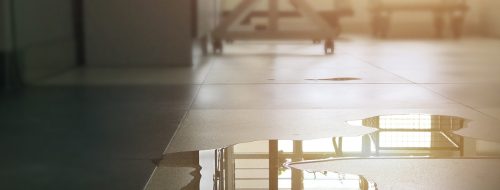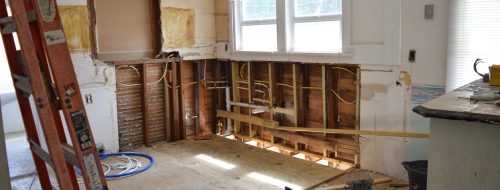Detailed Mold Inspections in Marietta and the Greater Atlanta Area
You know that weird, musty smell that just won’t go away? The one you keep trying to Febreze or bleach into oblivion? That’s usually mold’s way of saying, “I’m here.” And while you might not see anything growing in plain sight, that doesn’t mean it’s not hiding out behind the drywall, under the floors, or creeping through the HVAC system. Mold is sneaky like that—quiet, slow, and damaging in all the ways you don’t notice until it’s too late.
At Big Bear Restoration, we find every speck of mold hiding out in your home. Our mold inspections go beyond surface-level checks and into the places where moisture tends to linger. With advanced detection tools and years of experience, we give you real answers, not guesses. If your home’s been feeling a little off lately, we’ll help you figure out exactly what’s going on and what to do about it.
How Our Professional Mold Inspection Works
You don’t have to see mold growing to know something’s wrong. Maybe there’s a musty smell or a spot on the wall that wasn’t there last month. Our mold inspections dig deeper to find what’s hiding behind the scenes, using expert tools and trained eyes to pinpoint the problem.
Understanding the Different Classifications of Mold
Mold shows up in different forms, and each one tells a story about what’s happening in your home. Some types are more of a nuisance, while others can pose real health risks. Knowing which kind of mold you’re dealing with is the first step toward a proper remediation plan.
Commonly Asked Mold Inspection Questions
Mold needs three things to thrive: moisture, a food source, and time. Unfortunately, homes are full of materials that mold loves—drywall, wood, carpeting, and even dust. Add water to the equation, like a slow leak behind a wall, a damp basement, or leftover moisture after a flood or hurricane, and mold spores multiply quickly. Humidity and poor airflow only speed up the process.
That’s why it’s so important to catch and correct moisture problems early. Mold is a symptom of something bigger happening beneath the surface, and our professionals are here to resolve the problem.
Big Bear Restoration does not offer mold testing, but we work closely with trusted third-party environmental testing companies in the Greater Atlanta Area. We believe testing should always be done by an independent source to give you clear, unbiased results. If you need a referral, we’re happy to connect you with someone we trust.
Once testing is complete and you have a report in hand, our team can step in to develop a mold remediation plan based on the findings.
Insurance coverage for mold inspections can vary based on your policy and the source of the damage. If mold results from a covered peril—like a burst pipe or storm-related water intrusion—your inspection and remediation may be included. However, if the mold is due to long-term neglect or maintenance issues, it’s less likely to be covered.
We always recommend reviewing your policy and speaking with your insurance agent. And if you move forward with Big Bear Restoration, we’ll help handle the documentation process to make your claim as straightforward as possible.
Anywhere moisture lingers is at risk. We commonly see mold show up in:
- Bathrooms – especially around tubs, showers, and under sinks
- Basements and crawl spaces – where humidity is high and ventilation is limited
- Attics – often impacted by poor ventilation or roof leaks
- Laundry rooms – due to steam and the potential for leaks
- Kitchens – behind appliances or near plumbing lines
- HVAC systems and ducts – where moisture can build up unseen
The best way to prevent mold in these areas is to keep an eye on moisture levels and have routine inspections after water-related damage.
Absolutely. Even after the visible water is cleaned up, excess moisture can remain hidden behind walls, under flooring, or inside insulation. These damp pockets create the perfect environment for mold to grow, often without signs until it’s already become a problem.
A professional mold inspection after a flood or leak helps you catch any lingering issues early and avoid costly repairs. If you’ve had a recent water event in your home, it’s better to play it safe and schedule an inspection.
Clean, Grey, or Black? The Three Kinds of Water Damage Explained
When water enters your home or business unexpectedly, it’s easy to see only the mess…
How a Single Company Simplifies Restoration and Reconstruction
When disaster strikes, like a burst pipe flooding your living room, a fire leaving smoke…

